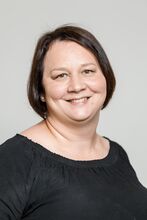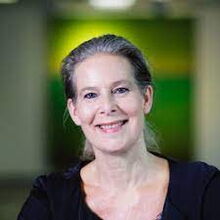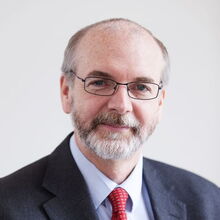Immunisation & Treatment - Societal benefits of immunising children
Is there a difference between recommending flu, RSV and COVID-19 vaccinations in children? What is meant by preventing secondary diseases and other societal wider benefits? What factors are considered before a country introduces a new vaccine in its national vaccination programme? How long does it usually take before a vaccine is rolled-out? And who are the happy wheezers?
In this comprehensive exploration and conversation among distinguished experts in the field of childhood immunisation we listen to Paula Tähtinen, Clinical Lecturer, Paediatrics and Adolescent Medicine / Adjunct Professor, University of Turku and ESWI Board Member, Hanna Nohynek, Chief Medical Officer, Team Leader of Vaccine Programme Development at the National Institute for Health and Welfare, Finland, together with Sir Andrew Pollard, Professor of Paediatric Infection & Immunity at University of Oxford and the Director of the Oxford Vaccine Group succinctly cover the various aspects of vaccinating against flu, RSV and COVID-19.

Nationality: Finnish
Position: Clinical Lecturer and Adjunct Professor, Paediatrics and Adolescent Medicine, University of Turku
Research Fields: respiratory tract infections, especially acute otitis media
ESWI member since 2022
Dr. Tähtinen received her Doctor of Medicine from the University of Turku in 2004. After graduating, she worked as a GP and resident in paediatrics in Central Finland and then as a PhD student at the University of Turku. In 2012, she successfully defended her PhD thesis entitled “Treatment of acute otitis media”. The same year, she received the ESPID Young Investigator Award and was selected as a Researcher of the Year by the National Graduate School of Clinical Investigation. After obtaining her PhD degree, Dr. Tähtinen continued her specialisation in paediatrics at the Turku University Hospital, Department of Paediatrics and Adolescent Medicine.
In 2013-2015 and in 2017 Dr. Tähtinen moved to the United States to work as a Postdoctoral Research Fellow at the Boston University School of Medicine and Harvard T.H. Chan School of Public Health. During her time in Boston, Dr. Tähtinen also studied at the Harvard Medical School Global Clinical Scholars Research Training Program in which she graduated in 2015.
Currently, Paula Tähtinen is an Adjunct Professor and Clinical Lecturer at the University of Turku, Finland. She is also working as a paediatrician at Turku University Hospital. She is leading her own research group with the main focus on prevention and treatment of respiratory tract infections. Dr. Tähtinen has been actively involved in the development of scientific and professional education at the University of Turku. She has also served as a Young ESPID (European Society for Paediatric Infectious Diseases) country representative and a committee member at the ESPID Research Networking Committee. In 2022, Dr. Tähtinen received the Helena and Niilo Hallman Prize for the best young researcher in the field of paediatrics.

Hanna Nohynek is a Finnish MD PhD, Chief Physician with special competences in international and travel health. She works in the Infectious Diseases Control and Vaccines Unit, Dept Health Security at the Finnish Institute for Health and Welfare (THL), which is a governmental public health research agency. She served as the secretary of the Finnish NITAG until 8/2023, still being a member, and is chairperson of the WHO SAGE, and former chairperson of the WHO SAGE working group on covid-19 vaccines. After coordinating several Phase II trials and major Phase III trial on 11PCV against childhood pneumonia in the Philippines until 2010, Nohynek joined THL, where her research responsibilities are in register-based vaccine impact studies, evidence-based policy/decision making, vaccine safety, acceptance, SARS-CoV-2, RSV, influenza, and pneumococcus. She co-leads IMI funded PROMISE consortium´s WP Preparation for future RSV product assessment (www.imi-promise.eu) and was co-leading the WP on communications of the IMI-funded DRIVE project (www.drive-eu.org). She authored >180 original articles; lectures, guides elective, graduate and PhD students. She belongs to Scientific Faculty of ADVAC (2000-), initiated EPIET vaccine module (1997-), and the Finnish Diploma Course Global Health (2000-). She initiated THL Finnish Vaccinators Manual and Finnish Travel Health Advisory. She has served expert national and international committees evaluating vaccines, and is advisor to many international organizations, incl European Medical Agency, International Vaccine Institute, Korea and icddr.b, Bangladesh.

Professor Sir Andrew Pollard BSc MA MBBS MRCP(UK) FRCPCH PhD DIC FHEA FMedSci
Ashall Professor of Infection and Immunity
Sir Andrew is Director of the Oxford Vaccine Group at the University of Oxford and an honorary consultant paediatrician (infectious disease and immunology) at Oxford Children’s Hospital. He received a knighthood in the Queen’s Birthday Honours in 2021 for services to Public Health and the Order of Medical Merit from the Federal Republic of Brazil in 2022.
His research includes the design, development and clinical evaluation of vaccines including those for typhoid, meningococcus, Haemophilus influenzae type b, pneumococcus, plague, pertussis, influenza, rabies, coronavirus and Ebola. His work on pneumococcal and meningococcal vaccines has been used in global public health policy. His studies on typhoid both using the human challenge model and in field sites supported the WHO prequalification of a new typhoid conjugate vaccine and WHO recommendations for its use in countries with a high burden of disease with more than 50 million vaccinated since 2021. He was the chief investigator for the clinical trials of the Oxford-AstraZeneca vaccine in 2020 in 24,000 participants in UK, South Africa and Brazil, which led to authorisation of the vaccine for use in more than 180 countries with over 3 billion doses distributed and award of the Copley Medal by the Royal Society in 2022. He has supervised 50 PhD students and his publications includes over 700 manuscripts. He chairs the UK Department of Health and Social Care’s Joint Committee on Vaccination and Immunisation, and was a member of WHO’s Strategic Advisory Group of Experts (2016-2022). He chaired the European Medicines Agency scientific advisory group on vaccines (2012–2020). He received the Bill Marshall Award of the European Society for Paediatric Infectious Disease (ESPID) in 2013, the ESPID Distinguished Award for Education and Communication in 2015 and the Rosén von Rosenstein medal in 2019 from the Swedish Society of Medicine, the James Spence Medal from the Royal College of Paediatrics and Child Health in 2022. He is chair of the Knoop Charitable Trust and is a trustee of the Jenner Vaccine Foundation, the Academy of Medical Sciences and the Oxford Philharmonic Orchestra.






